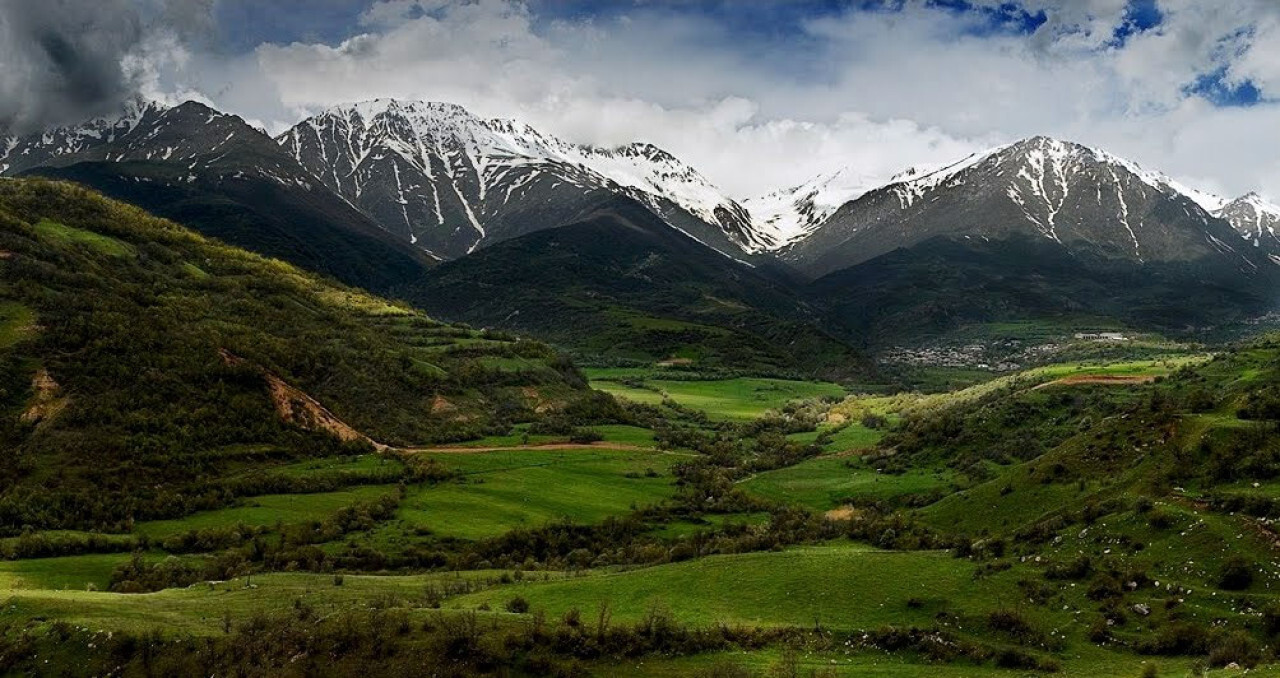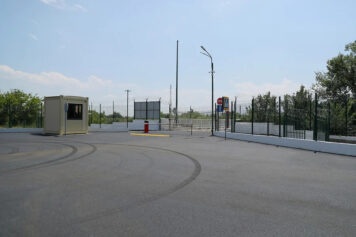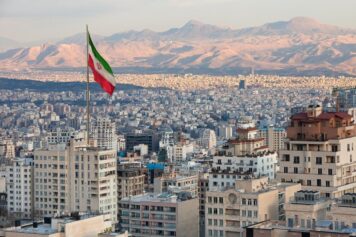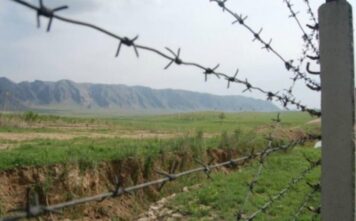Turkish–Israeli game: Syunik, David’s Corridor and Syria
08.08
2025
Current geopolitical events change so instantly that one can hardly guess the next development. For example: France is in shock — the Naval Group company, which is the largest firm supplying the French Navy and builds submarines, aircraft carriers and warships, was subject to an unprecedented cyberattack. Let us note that those aircraft carriers are nuclear-capable. Only 24 hours after the Élysée Palace announced that official Paris would vote in favor this autumn of recognizing the State of Palestine at the UN, secret codes, archives, employee conversations, correspondence and intelligence on other countries — in total 13 gigabytes of electronic documents belonging to the French naval forces — were completely hacked. This is reminiscent of the power blackout that affected all of Spain a few days ago, when the electrical grids went down across the country for 12 hours as a result of a cyberattack following a similar announcement that Madrid intended to recognize the State of Palestine.
I believe the Armenian authorities — who recognized Artsakh as part of Azerbaijan — are on the same path, because the vector of foreign policy is acting in contradictory directions. Thus, on one hand Armenia recognized Armenian Artsakh as part of Azerbaijan, opposing its independence — which is the basis for a new war — and on the other hand, after a phone call with Erdoğan a day earlier, on June 21, 2024, it recognized Palestinian independence by joining the UN GA resolutions, justifying that as a step toward establishing peace. As we see, words are unnecessary — especially if we take into account that the proclamation of a Palestinian state does not depend solely on Yerevan’s political will. I have repeatedly addressed this topic, noting that within the logic of the New Middle East the Palestinian state should be proclaimed in some form — particularly in these confused times when Washington has largely neutralized the Shiite factor in Syria and Lebanon — the future Palestinian state from birth will be toothless: disarmed and with limited access to the sea. In other words, all this will be some form of an international step aimed at stopping armed struggle, which will calm Arab passions, control anti‑Israeli actions, and force Saudi Arabia and the Gulf Arab states to invest, develop economies, and allow people to live with open borders — enabling free trade and movement.
I have spoken a lot about the regional role and importance of Saudi Arabia and emphasized the need for official Yerevan to pursue proactive foreign policy and maximize gains through economic diplomacy. The Americans don’t flirt with the Saudis for no reason. Leaving aside American interests and stakes in Saudi oil resources over the past 30 years, note that Saudi Arabia is in a way the center of the Sunni world and does not want to cede that baton to Washington’s ally Turkey. But this is politics and everyone looks after its interests. If the US does not, even partially, satisfy Saudi Arabia — i.e., the main representative of Sunnis — its place and role on the new global economic map will be ceded.
The US is China’s counterweight, and it is logical that along the New Silk Road, or under the Belt and Road Initiative, Washington should try to strengthen Beijing’s regional competitors — in this case, India. This was clear in the recent India–Pakistan war when China greatly helped Pakistan, India’s enemy, while the US unintentionally supported Delhi. By the way, a batch of Apache helicopters, which the US rarely sells to other countries, was sent to India as part of a $600 million deal. The problem here is multilayered, because many decisions in Pakistan cannot bypass the country’s Armed Forces institution, and the Pakistani army is largely under an American counterbalance. That means the US in this region, besides China, monitors and controls the balance of forces. Therefore creating alternative global trade routes is among America’s priorities, perhaps even more than the Ukrainian quagmire. To be an alternative to the Chinese route, a regional state of China’s scale — India — must enter the game, and the route from India should go through the Middle East and from there to Europe. Thus, today a central role in the Middle East is reserved for Saudi Arabia. Seven months ago, when Donald Trump took the helm of the White House, I addressed this topic and predicted that within the anti‑China campaign the US would need to requalify an old ally in the Middle East; I also noted the objective cessation of hostilities in Gaza, which is already becoming reality. The US must reach Saudi Arabia via India, and Saudi Arabia, as I said, is a key player in the Islamic world — an unrivaled oil giant. It’s no coincidence that Trump responded to Saudi Crown Prince Mohammed bin Salman’s appeal and lifted US sanctions on Syria, thereby clearing the diplomatic, economic and political field in Syria for the Saudis, who in turn must reduce Turkey’s role in Syria. The game is large and the arrangement of chess pieces can change every second.
Without a relatively secure Middle East, it’s impossible to build an alternative mega trade-economy route. For that purpose, pro‑Iranian militant groups were neutralized in the process, Israel’s security was strengthened, because it was clear to all players that if Iran simultaneously activated its proxies in the Shiite crescent — in Syria, Lebanon, Yemen, Iraq, and Palestine, from Hezbollah to Hamas, the Houthis, Popular Mobilization, Fatimids, Zahrayans — and if they all acted at once, then the existence of the Israeli state would be in question within 24 hours. Israel’s preemptive strike and the assurance of US participation pursued precisely this goal: to make Iran compliant and to ensure it won’t disrupt regional cooperation or large economic projects.
At the same time a logical question arises: who will service such a long and large route — from infrastructure to services? The logical answer is India’s population, which can become a competitor to Chinese labor in the Asian region. Indians work for low wages, so they can fill that field. Thus India will become a key actor in a complex geopolitical network — with the possibility of a land route, military superiority relative to Pakistan, and as an economic counterweight to China in global trade opportunities. However, we don’t predict all this to happen peacefully and safely, because there are many obstacles on the way that the US and Israel must overcome. The first major challenge is creating new corridors, with their security risks. We are talking about the division of Syria and Iraq, the creation of David’s Corridor, which I have probably addressed a few times in the last six months, even presenting the danger of Syria’s fragmentation and its effect on Armenia, particularly the issue of creating a so‑called corridor through Syunik.
Now let’s try to see what is happening in the South Caucasus and to us.
A few days ago US President Donald Trump and European Commission President Ursula von der Leyen met in Scotland — at Trump’s golf club — and reached a pivotal agreement. Usually we don’t pay much attention to such meetings and simply call them routine or ceremonial, but in fact we should closely follow every statement and action by leaders of the great powers. At the EU‑US meeting a very important, pivotal decision was adopted: Europe will import $750 billion worth of energy carriers from the United States over the next three years, and the EU also pledged to make an additional $600 billion in investments in the United States. The question arises: what is strange here — isn’t this just an ordinary economic deal? I would say this is a fateful agreement that can seriously transform Europe’s economic relations with the US and affect energy geopolitics — especially for countries like Azerbaijan that supply energy to the EU. What does the EU’s purchase of $750 billion in energy from the US mean?
This step implies that:
- The EU will create a more explicit dependence on the US in the energy agenda, especially in liquified natural gas, oil and advanced energy technologies.
- The EU is moving away from the classical strategy of energy diversification based on several stable suppliers — Norway, Azerbaijan, Algeria and partly the Caspian region.
- This reinforces US claim to hegemony over Europe’s energy.
What does the EU’s $600 billion investment in the US mean?
- It mainly concerns EU technological, financial and industrial businesses entering the US, strengthening ties in strategic sectors.
- EU industrial capital is being moved out of Asia (China, India) and concentrated in the US — a geopolitically more reliable partner.
- This step allows the EU to more easily engage with the US market and expand exports to offset energy import costs.
What could this mean for Azerbaijan?
- The EU will reduce its energy dependence on Azerbaijan.
- After this agreement, the EU will give priority in its energy strategy to the US, which means:
- Azerbaijan will remain a secondary supplier for potential local crises.
- Azerbaijan’s role in the energy market will diminish.
- The EU‑US agreement would allow the EU to avoid becoming a victim of Azerbaijani monopoly as happened in 2022–2023.
- Azerbaijan’s energy model as a political lever over the EU would be seriously disrupted.
- Azerbaijan will lose the strategic advantage of being a “transit great power”:
- If the EU begins importing mass amounts of energy from the US with guaranteed supply volumes and security, the convoluted and unstable Caucasus routes (Caspian–Georgia–Turkey) will no longer be a priority.
- This weakens the international promotion arguments for the “Zangezur corridor.” It is no coincidence that the most interested parties in this matter are Ankara, Baku and the authorities in Yerevan.
This agreement is a clear signal to the world that:
- The EU will build its strategic energy future with the US.
- Intermediate suppliers like Azerbaijan will become not strategic pillars but semi‑functional actors.
In the entire context the statement by Ankara’s ambassador in Baku is interesting; in fact, it brings clarity.
In fact, the authorities they have installed in Ankara, Baku and Yerevan are beating their chests to give Azerbaijan a way through Syunik. On this issue Nikol Pashinyan and his team’s stance has long been clear — they’ve named it the “Crossroads of Peace,” but in reality it must serve the realization of the British‑Turkish Turan corridor idea. Vahagn Khachaturyan, who works for Nikol as a president, only accepting credentials from ambassadors, and occupying the territory and chair of a state institute at the expense of the people’s taxes, pursues the same line. He recently made a stunning, anti-Armenian statement regarding the Syunik corridor.
To the one who considers himself president I will say one simple truth: if the road is handed over to international management or any foreign organization, Armenia’s presumed sovereignty will become a dream — threatening the Armenian existential presence in this region. So don’t read meaningless speeches that claim we will develop if the border opens. A capable government would have ensured development in at least one direction within seven years. These people even imagine the state machinery, diplomacy, and foreign policy only as what their masters tell them, and nothing more.
The Armenian government has put us into a terribly hellish and super‑dangerous game: it wants to paralyze the energy system in the country, drive out the Russian capital and teach us again to the dark future. Note also that not all this will happen at once because an election year is ahead; it is a period for gathering and reassembling the electorate, recruiting new zombies. All this will be implemented step by step. Recall that during the last period of Democratic governance, high‑ranking American officials said: Armenia must learn to endure a few cold winters to become sovereign. Now the Electric Networks of Armenia will find itself in a difficult situation; we are already learning about rotational outages, and later they’ll say the nuclear plant is dangerous and must be closed, and similar things. I have addressed these topics many times, given clear assessments, and I also envision concrete solutions. Let me stress only one thing: we will chase these people away; we must put an end to their genocidal and destroying policies. I also know that everyone is waiting for concrete solutions and time is not working in our favor, but the breath of a reborn Armenia is already being felt.





